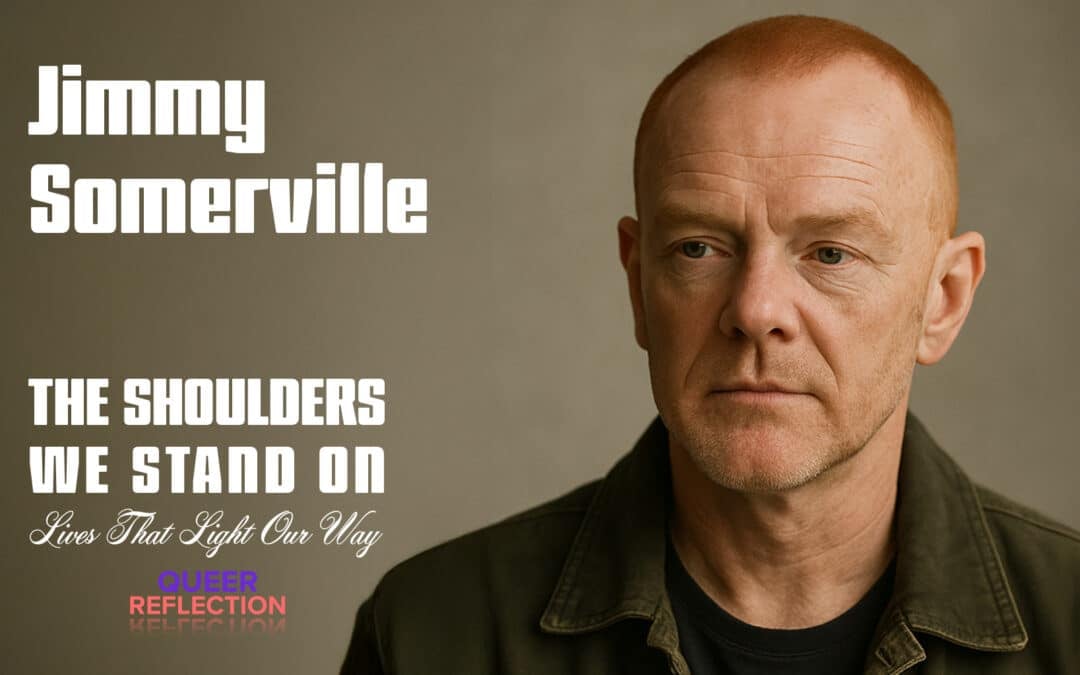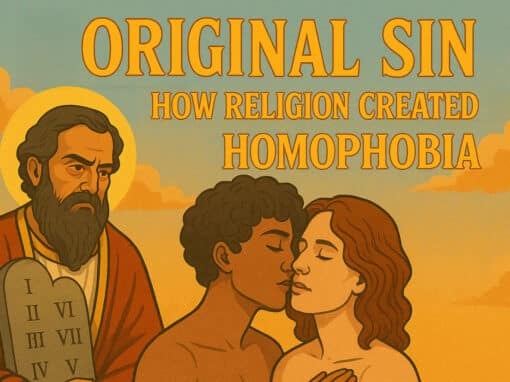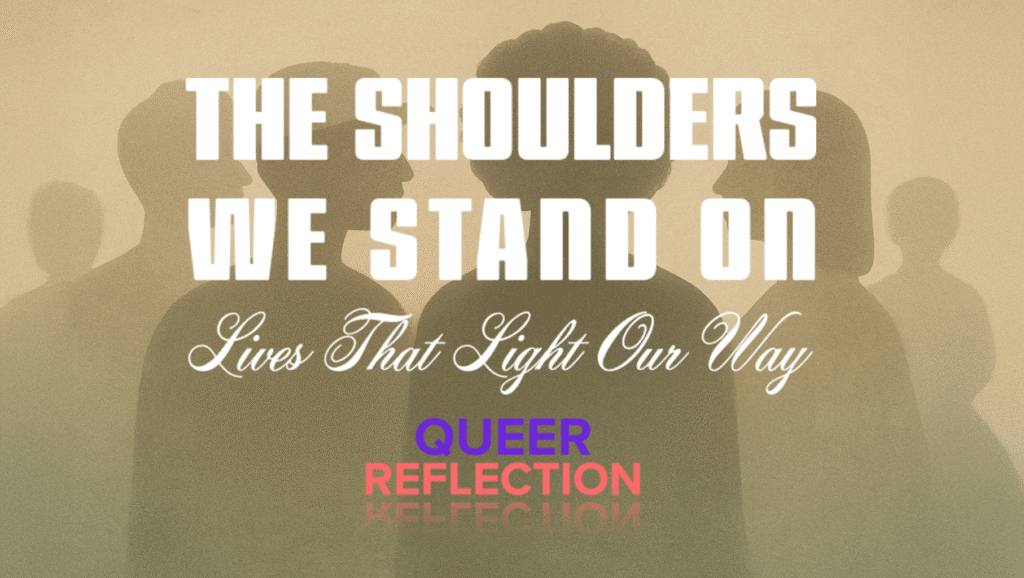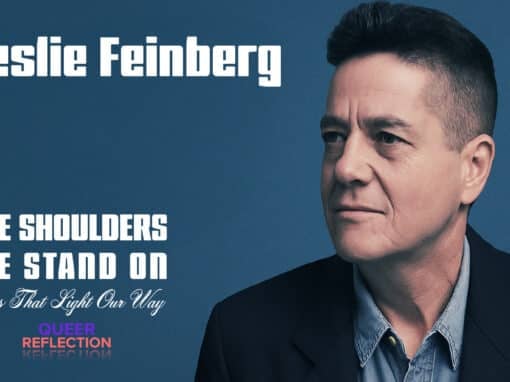“There’s a massive glitter ball in my head and it has never stopped turning.”
— Jimmy Somerville
In the pantheon of queer icons, few have wielded their voice as both a musical instrument and a weapon of resistance quite like Jimmy Somerville. Rising to prominence in the 1980s with Bronski Beat and later The Communards, Somerville’s ethereal falsetto became synonymous with anthems of liberation, love, and defiance.
A Voice That Broke Barriers
Somerville’s debut with Bronski Beat’s “Smalltown Boy” wasn’t just a chart-topping hit; it was a seismic shift in pop culture. The song’s poignant narrative of a young gay man facing rejection and seeking acceptance resonated deeply within the LGBTQ+ community and beyond. Its accompanying video, depicting the protagonist’s struggles, brought queer stories into mainstream consciousness at a time when they were largely marginalized.
“Smalltown Boy” wasn’t merely autobiographical; it was a universal cry for understanding and acceptance. The track’s success signaled a new era where queer voices could no longer be ignored.
From Disco to Direct Action
Beyond his musical achievements, Somerville was an unapologetic activist. In interviews, he emphasized the importance of reclaiming disco—a genre rooted in queer and Black communities—as a form of resistance. He once remarked:
“Looking back at the history of the politics of disco, it was about gay men, black men and also women having an uplifting celebration in the face of adversity and discrimination.”
— Jimmy Somerville
His covers of classics like “Don’t Leave Me This Way” and “I Feel Love” weren’t just tributes; they were reclamations, infusing them with renewed queer energy and purpose.
A Personal Encounter
On a personal note, I had the pleasure of meeting Jimmy Somerville while working at a flower stand in downtown San Francisco. He approached with a warm smile, engaging in light-hearted conversation. His charm and approachability left a lasting impression, embodying the very authenticity he championed in his music and activism.
Legacy and Influence
Somerville’s influence extends beyond his discography. His courage to live openly and address issues like homophobia and the AIDS crisis paved the way for future generations of artists and activists. His work remains a testament to the power of authenticity and the importance of using one’s platform for advocacy.
Further Exploration
• Jimmy Somerville’s Official Website








